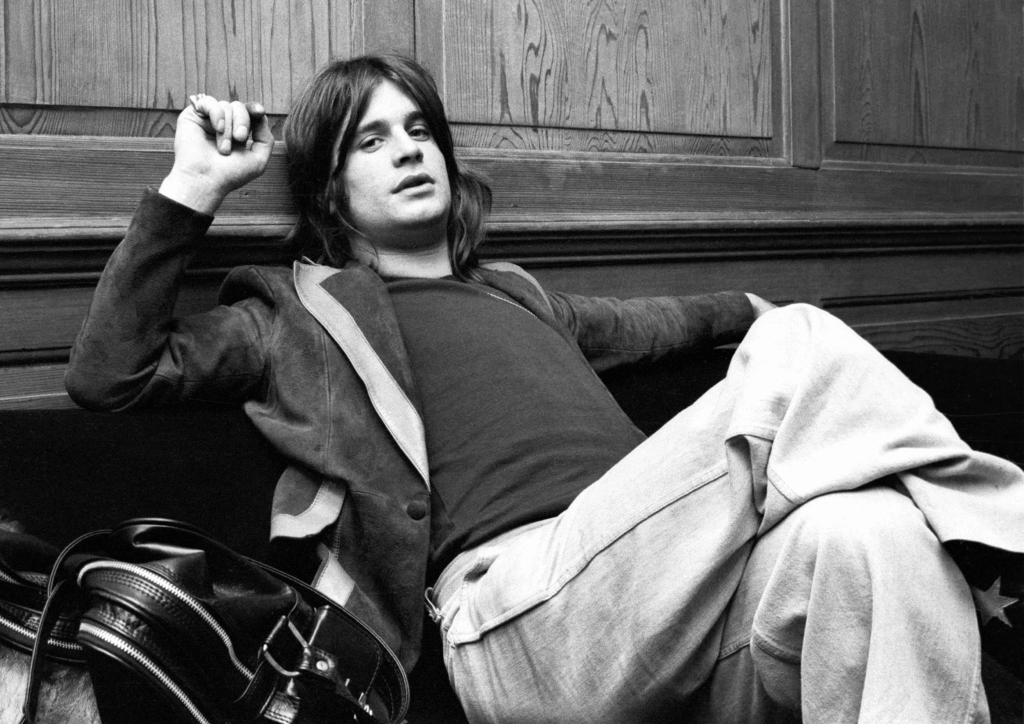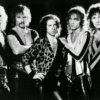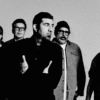In the working-class streets of Aston, an industrial suburb of Birmingham, John Michael Osbourne—better known as Ozzy—was born. His childhood was marked by poverty: he shared a small house with five siblings, a father who worked night shifts as a factory laborer, and a mother employed at a car parts plant. From an early age, Ozzy understood what it meant to have nothing. That sense of marginalization didn’t just shape his life—it became the foundation of his entire career.
Unlike other rock stars who rose to fame from comfort or privilege, Ozzy climbed his way out from the bottom. He took on various low-paid jobs, spent time in jail, and witnessed firsthand the harsh reality faced by those with no opportunities. It was during these years that he found music—not to forget his roots, but to give them power.
When he co-founded Black Sabbath with other equally disillusioned young men, Ozzy unknowingly became the voice of a working-class generation that had no representation. Songs like “War Pigs” and “Children of the Grave” channeled the fear, frustration, and anger of those sent to fight unjust wars or condemned to a futureless life of labor. His haunting and theatrical voice wasn’t just for effect—it was a protest, a dark plea on behalf of the ignored.

What set Ozzy apart from many of his peers was his unfiltered connection to the streets. He never tried to sound intellectual or hide behind metaphors. He was raw, direct, at times overwhelming—but always real. His stage presence, his lyrics, and his attitude all spoke from the lived experience of growing up in fear, going hungry, and having no safety net. And that’s why millions connected with him.
Even during his solo career, after being fired from Black Sabbath, Ozzy remained loyal to his working-class identity. While he explored new sounds and worked with prodigious young musicians, he never betrayed his origins. His music remained a refuge for outcasts, misfits, and young people searching for answers in a chaotic world.
Beyond the music, Ozzy wasn’t afraid to speak out. On several occasions, he openly criticized governments that neglected the vulnerable and condemned political leaders who sowed division. Even in old age, he never hesitated to call out hypocrisy or the indifference shown to the working class. His stance toward certain world leaders was clear and confrontational: the powerful didn’t represent him, and he had no interest in representing them.
Through his interviews, memoirs, and public appearances, Ozzy consistently reminded the world that he didn’t see himself as a hero—but rather as a survivor. And it was precisely that honesty that made him a symbol for those who also fought to survive. Fame didn’t pull him away from the people. Instead, he worked to create opportunities for young bands, to build accessible festivals, and to keep metal alive as a form of popular expression.
Ozzfest, for example, was more than a music festival. It was a political and cultural statement—a gathering place for urban tribes, a sanctuary for shared struggle, and a space for grassroots resistance. Over the years, Ozzy became more than a rock icon. He became a unifier, a conduit for communities that found in his music a reason to keep going.

Until the very end, Ozzy remained that boy from Aston—marked by inequality and shaped by hardship. He never denied his roots. He never bowed to power. He was eccentric, excessive, even outrageous. But he was never false. His authenticity, his brutal honesty, and his deep empathy for the forgotten turned him into an unlikely but undeniable hero.
Today, his legacy transcends records and stages. Ozzy Osbourne will be remembered not only as the Prince of Darkness but also as the eternal voice of the working class. The man who, through a raspy scream and a distorted guitar, gave name and shape to the despair, rage, and hope of millions.







